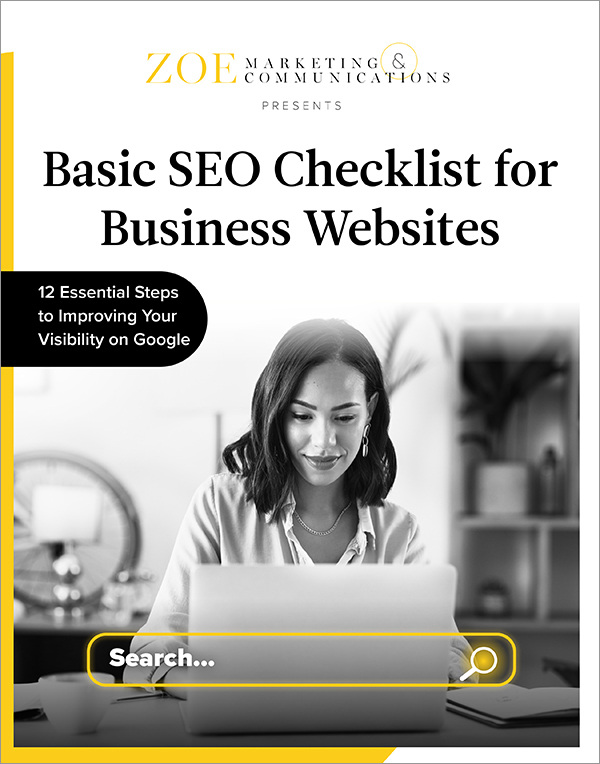
Download Your Basic SEO Checklist
Unlock the fundamentals of search engine optimization. This checklist provides step-by-step guidance to improve your site’s search ranking.

You know a spammy-feeling website right away. It’s overloaded with repeated phrases, trying too hard to catch Google’s attention. That’s keyword stuffing.
But keyword overuse is much more common — and easier to stumble into. Repeating a phrase too often can happen naturally, but it hurts your SEO and visibility on Google.
At Zoe Marketing & Communications, we’ve helped businesses fine-tune their keyword strategies since 2020. Here’s what to know about keyword overuse, why it’s a problem and how to fix it.
Unlock the fundamentals of search engine optimization. This checklist provides step-by-step guidance to improve your site’s search ranking.
Keywords connect user searches to your content. They appear in headlines, subheads, body copy, URLs and meta descriptions.
Used well, they drive the right traffic. But overusing them? That’s where problems start.
Keyword overuse happens when a phrase appears too often in your content.
It’s not always “keyword stuffing” (a deliberate SEO manipulation tactic), but it still feels unnatural and hurts readability. And, after 25 years in the game, Google has caught on.
Let’s say your keyword is “top-ranked high school.” Overuse might look like this:
As a top-ranked high school, we pride ourselves on our academic programs. Our top-ranked high school offers great extracurriculars. Enroll in our top-ranked high school for a bright future.
It’s not spammy, but it feels off — more salesy than informative. And this mistake can hurt your SEO.
Too many keywords disrupt the natural flow of your writing. Readers pick up on it fast — and they leave your page even faster.
User experience (UX) is key for SEO. If your content feels clunky and repetitive, visitors will leave, causing:
Google flags content that overuses keywords. While not as severe as keyword stuffing, overuse can still:
Google prioritizes valuable, user-friendly content. Overused keywords that rank today may not rank well later as search algorithms evolve.
Keyword overuse is an easy mistake — but it hurts content quality, UX, rankings and SEO.
This guide covered how it happens, why it’s a problem and solutions to fix it.
Ready to optimize your SEO? Talk to us at Zoe Marketing & Communications. We’ll craft a tailored strategy to boost your search rankings.
Or, to bolster your SEO confidence even more, explore:

Unlock the fundamentals of search engine optimization. This checklist provides step-by-step guidance to improve your site’s search ranking.
As Zoe Marketing & Communications’ content manager, Kim Kovelle brings over 20 years of writing and editing experience in metro Detroit. She has strong roots in community journalism and a knack for making complicated topics make more sense.
